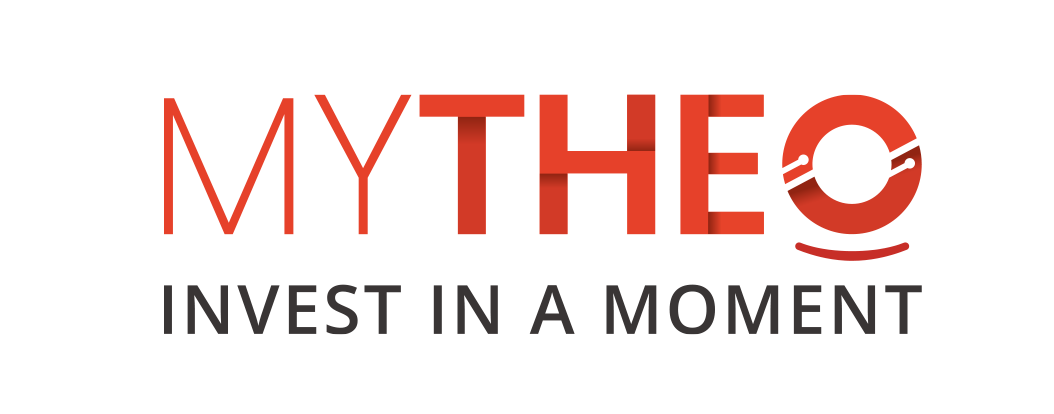Wednesday, 22 May 2019
Written by Prof. Yasuyuki Kato
Recently I am often asked the question, "Do you make money using AI?". The technical aspects of “AI and asset management” were introduced in a previous blog post, so this time I would like to answer this question.

What do we mean by "make money"?
Before answering the question, first, let's organize what it means when you say "profit". In asset management, "profit" means "there is a positive return". It is useful to divide this return (hereinafter called total return) into the following two parts.
Total return = market average return + excess return
Here, the average market return is the return of an index that represents the entire market, such as TOPIX in Japan. Excess returns mean returns above the market average.
For example, if you invest 1 million yen and this increases to 1.2 million yen, the total return will be 20% ((120-100) / 100 = 20%). If TOPIX returns 15% during this same period, excess returns will be 20% -15% = 5%. In other words, the 20% total return is made up of 15% from the market (TOPIX) return plus 5% of the excess return. Of course, excess returns can be negative. Excess returns, also called alpha, represent the level of asset management performance.
Do you make money using AI?
Well, to answer this question, let's think about the top two returns separately. First is the market average return. Market average returns such as TOPIX reflect the performance of the entire Japanese economy. If a company or the economy as a whole grows, the average market return will increase, and if it does not grow, the average market return will decrease. In other words, whether we use AI for asset management does not seem to affect the size of average market return. Of course, the widespread use of AI in manufacturing and service industries may have the effect of increasing the efficiency of the enterprise and the economy as a whole and increasing growth, but this has nothing to do with the application of AI to asset management.
The problem is the second part, the excess return. Since excess returns represent asset management skill, it seems that excess returns might be higher with advanced AI. But there is one important thing to remember. That is, the sum of the excess returns of all market participants will be zero. The reason is that the total return of all managers is the average market return. In other words, you need to win the competition with other participants to get a positive excess return. No matter how good the performance is, if other participants do even better, the excess return will be negative.
There are data that can be used to predict the impact of AI on excess returns. S&P Dow Jones Indices, famous for its S&P500 Index, has published information on excess returns on mutual funds worldwide. According to this, regarding US investment trusts, it can be seen that the proportion of investment trusts that have failed to provide positive excess returns since around 2005 continues to trend upwards. (Refer to the chart below)

It is difficult to prove the causality, but I think it is the influence of the Internet. In other words, thanks to the Internet, anyone including serious amateurs can easily obtain much information necessary for asset management, resulting in intensifying competition among managers and making it difficult to obtain excess returns.
By the way, recently, ETFs that offer market average returns at low cost are gaining in popularity, and this is probably for the same reason. I think that the introduction of AI will accelerate the decline in excess return. In fact, according to the Nihon Keizai Shimbun dated August 30, 2018, there are ten AI investment trusts (investments trusts run using AI technology) sold in Japan, and the performance since March 2017 of most of them is in line with the market average. It's not a simple story of using AI to get excess returns. In short, the fact that the battle between human portfolio managers is being replaced by the battle between AIs does not change the fact that the total excess return is zero. However, for the time being, portfolio managers who utilize AI will coexist with traditional portfolio managers who are not using AI, so the manager who use AI may have an advantage for a while.
What are the benefits for investors?
If expectations for excess returns from AI are not so high in the long-run, what kind of merit will the introduction of AI have for individual investors?
Actually, the biggest benefit is the reduction of asset management costs. The introduction of AI greatly automates the management and back office clerical tasks that analysts and fund managers have previously performed. These will gradually be mostly automated in the long run. Therefore, labor costs should be reduced, and investment management fees should also be reduced. In any case, the flow of AI use into the asset management industry will not stop. Portfolio managers will not be able to compete effectively unless they use AI. This is the same as a portfolio manager who a PC or the Internet. AI will eventually become a familiar technology like the Internet. In addition, the use of AI is not limited to pursuing excess returns, but it has a very broad usage, such as risk control, improving the accuracy of portfolio personalization, and correcting biases in individual investors' product choices, so there are many potential benefits for investors.
MYTHEO and AI
Finally, let's talk about MYTHEO and AI. MYTHEO incorporates AI under the name of "AI Assist". However, the purpose is not to aim for high returns in the short term, but to mitigate as much as possible the damage to the portfolio when a financial shock occurs.
The scariest thing about asset management is to sustain a lot of damage. For example, suppose that an asset of 1 million yen fell 40% after a financial shock and became 600,000 yen. In order for this 600,000 yen to return to the original value of 1 million yen, it needs to rise not by 40% but by 67%. It cannot recover unless it rises 27% more than the 40% that it fell. If you doubt this number, please calculate ((100–60) / 60) yourself. This means that the financial shock will bring the principal to 600,000 yen, and a return rate greater than the decline will be required to return from the reduced principal to the amount before the decline. And this difference will increase as the rate of decline increases. In fact, after the Lehman shock in September 2008, we spend as much as 4 years and 2 months recovering the 40% (TOPIX basis) that the market dropped in 6 months. Therefore, long-term performance improvement can be expected if the rate of decline can be mitigated even by a small amount.
MYTHEO's AI Assist constantly monitors the market sentiment index, which is created by analysing a huge amount of information such as global news, expert comments, and general SNS, etc., and constantly searches for signs of a major decline, such as a financial shock. It is programmed to make portfolio optimization conditions more conservative is the risk is high and hence try to ease the rate of decline. Of course, it is impossible to predict the financial shock completely or to make the rate of decline zero, but if any rate of decline can be mitigated, it will lead to an improvement in long-term performance You can think of it as MYTHEO's fundamental management policy is to provide high-quality, long-term asset management by allocating functional portfolios suited to each individual, even in the era of AI.
In conclusion, AI is not essential to asset management performance. The essential thing is the investment philosophy i.e. what kind of asset management to do, and AI is just a tool to help realize this. As such, it is a useful tool. However, asset management without an investment philosophy cannot be expected to lead to good results, even with the latest AI tools.
Article By Prof. Yasuyuki Kato
Professor at Kyoto University Graduate School. Masters degree from Tokyo Institute of Technology, PhD from Kyoto University. Previously Executive Director at Nomura Securities Co., Ltd. Director of the Financial Engineering Research Center at Kyoto University. His specialty is investment theory and financial engineering. Academic adviser to Money Design Co., Limited.



